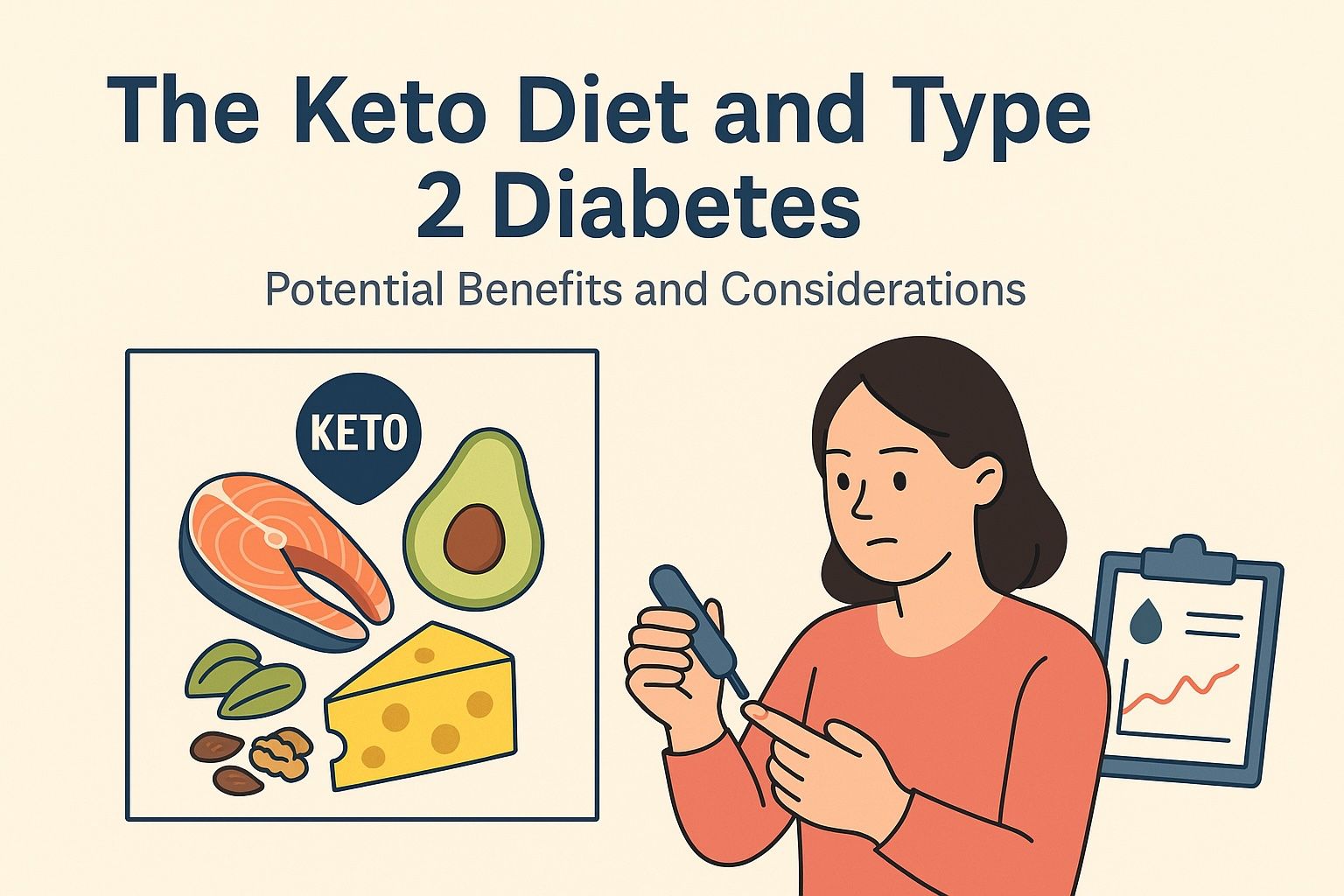The Keto Diet and Type 2 Diabetes: What the Research Really Says
Published on 5/18/2025 · 📖 3 min read

The ketogenic (keto) diet—a high-fat, very low-carbohydrate eating pattern—has gained popularity as a potential strategy for managing type 2 diabetes. While some studies suggest it may support blood sugar control and weight loss, experts caution that it's not a one-size-fits-all solution.
This article explores the potential benefits, risks, and practical considerations of the keto diet for individuals with type 2 diabetes.
What Is the Keto Diet?
The keto diet involves drastically reducing carbohydrate intake (typically to fewer than 50 grams per day) and increasing fat consumption. This shift prompts the body to enter a state called ketosis, where it burns fat for energy instead of carbohydrates.
Potential Benefits for Type 2 Diabetes
1. Improved Blood Sugar Control
Some research indicates that the keto diet may help stabilize blood sugar levels. By minimizing carbohydrate intake, the diet reduces blood glucose spikes, potentially leading to lower HbA1c levels—a marker of long-term blood sugar control.
2. Weight Loss
Weight loss can improve insulin sensitivity and glycemic control. Studies have shown that individuals with type 2 diabetes on a keto diet may experience significant weight loss, which can contribute to better diabetes management.
3. Reduced Medication Needs
Some individuals following a keto diet have been able to reduce or discontinue diabetes medications under medical supervision, likely due to improvements in blood sugar control and weight loss.
Considerations and Risks
1. Sustainability Challenges
The restrictive nature of the keto diet can make it difficult to maintain long-term. High dropout rates have been observed in studies.
2. Nutrient Deficiencies
Eliminating or severely limiting certain food groups can lead to deficiencies in fiber, vitamins, and minerals—resulting in fatigue, constipation, or imbalances.
3. Potential Increase in LDL Cholesterol
Some may experience an increase in LDL ("bad") cholesterol, potentially raising cardiovascular risk.
4. Risk of Hypoglycemia
For those on insulin or certain diabetes medications, the keto diet may increase the risk of hypoglycemia (low blood sugar).
5. Not Suitable for Everyone
Avoid the keto diet if you:
- Have kidney or liver disease
- Are pregnant or breastfeeding
- Have a history of eating disorders
- Are on SGLT-2 inhibitors or similar medications
- Have a genetic fat metabolism disorder
Perspectives from Health Organizations
The American Diabetes Association (ADA) acknowledges that low-carbohydrate diets can be effective for short-term weight loss and glycemic control. However, they recommend individualized meal planning and highlight that the long-term effects of strict low-carb diets like keto are still unclear.
Practical Tips for Considering the Keto Diet
- Consult a Doctor First: Especially if you're on diabetes medications.
- Choose Healthy Fats: Emphasize unsaturated fats like olive oil, avocados, and nuts.
- Track Blood Sugar: Monitor levels regularly.
- Watch for Side Effects: Especially during the transition phase (e.g., fatigue, “keto flu”).
- Ensure Adequate Nutrition: Supplement as needed to avoid deficiencies.
Conclusion
The keto diet may offer benefits for some individuals with type 2 diabetes, particularly in terms of blood sugar control and weight loss. However, it's not suitable for everyone, and long-term safety is not fully understood. Always seek medical guidance before making significant dietary changes.
Disclaimer: This article is intended for general wellness education only. It is not medical advice. Please consult a healthcare provider for any medical concerns.
Author Bio
The GlucoSpike AI Blog Writer is dedicated to providing evidence-based, educational content on blood sugar wellness. Our goal is to empower readers with practical information to support healthy lifestyle choices.
Sources
 GlucoSpike AI
GlucoSpike AI 
